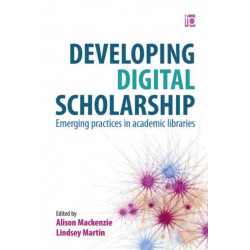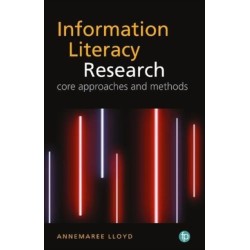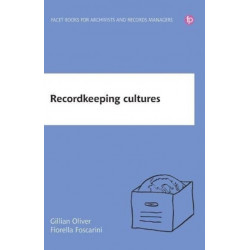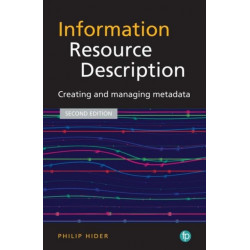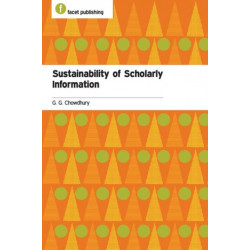Ingen varer
Facet Publishing Forlag
Visning: Type : Alle | Sprog : Alle | Format : Alle
-
Bemærk: Kan leveres før jul.
Introduction to Documentation Studies (Bog, Paperback / softback, Engelsk)This unique text outlines the main scientific purpose and objective of the science of documentation and also describes the main skills for a documentalist in the 21st century.
Levering: 6 - 9 hverdage -
Bemærk: Kan ikke leveres før jul.
Practical Tips for Developing Your Staff (Bog, Hardback, Engelsk)This book offers innovative tips and tried-and-tested best practice to enable library and knowledge workers to take control of professional development regardless of the budget and time available to them.
Levering: Skaffevare (forvent 14 - 30 hverdage) -
Bemærk: Kan ikke leveres før jul.
Developing Digital Scholarship: Emerging practices in academic libraries (Bog, Hardback, Engelsk)This book provides strategic insights drawn from librarians who are meeting the challenge of digital scholarship, utilizing the latest technologies and creating new knowledge in partnership with researchers, scholars, colleagues and students.
Levering: Skaffevare (forvent 14 - 30 hverdage) -
Bemærk: Kan ikke leveres før jul.
Participatory Heritage (Bog, Hardback, Engelsk)This book provides a wide range of international guidance and perspectives on the complexity of issues surrounding the preservation of local cultural heritage, ranging from formal... Læs mere
Levering: Skaffevare (forvent 14 - 30 hverdage) -
Bemærk: Kan ikke leveres før jul.
Essential Law for Information Professionals (Bog, Paperback / softback, Engelsk)The new fourth edition, provides up-to-date and easy-to-follow practical guidance on the law as it affects information management and the principles underlying practice
Levering: Skaffevare (forvent 14 - 30 hverdage) -
Bemærk: Kan ikke leveres før jul.
Essential Law for Information Professionals (Bog, Hardback, Engelsk)The new fourth edition, provides up-to-date and easy-to-follow practical guidance on the law as it affects information management and the principles underlying practice
Levering: Skaffevare (forvent 14 - 30 hverdage) -
Bemærk: Kan leveres før jul.
The Qualitative Landscape of Information Literacy Research: Perspectives, Methods and Techniques (Bog, Paperback / softback, Engelsk)This book describes the qualitative research landscape in information literacy, identifying the core approaches and less used or innovative applications.
Levering: 6 - 9 hverdage -
Bemærk: Kan leveres før jul.
Recordkeeping Cultures (Bog, Paperback / softback, Engelsk)Recordkeeping Cultures explores how an understanding of organisational information culture provides the insight necessary for the development and promotion of sound recordkeeping practices.
Levering: 6 - 9 hverdage -
Bemærk: Kan ikke leveres før jul.
Recordkeeping Cultures (Bog, Hardback, Engelsk)Recordkeeping Cultures explores how an understanding of organisational information culture provides the insight necessary for the development and promotion of sound recordkeeping practices.
Levering: Skaffevare (forvent 14 - 30 hverdage) -
Bemærk: Kan ikke leveres før jul.
Information Resource Description: Creating and managing metadata (Bog, Hardback, Engelsk)This new edition offers a fully updated and expanded overview of the field of information organization, examining the description of information resources as both a product and process of the contemporary digital environment.
Levering: Skaffevare (forvent 14 - 30 hverdage) -
Bemærk: Kan ikke leveres før jul.
Information Needs Analysis: Principles and practice in information organizations (Bog, Hardback, Engelsk)If you want to provide an information service that truly fulfils your users' needs, this book is essential reading. The book supports practitioners in developing an information needs analysis strategy and offers the necessary professional skills and techniques to do so.
Levering: Skaffevare (forvent 14 - 30 hverdage) -
Bemærk: Kan ikke leveres før jul.
Sustainability of Scholarly Information (Bog, Hardback, Engelsk)This is the first book to discuss the sustainable development of digital scholarly information in three key aspects: economic, social and environmental sustainability.
Levering: Skaffevare (forvent 14 - 30 hverdage)



